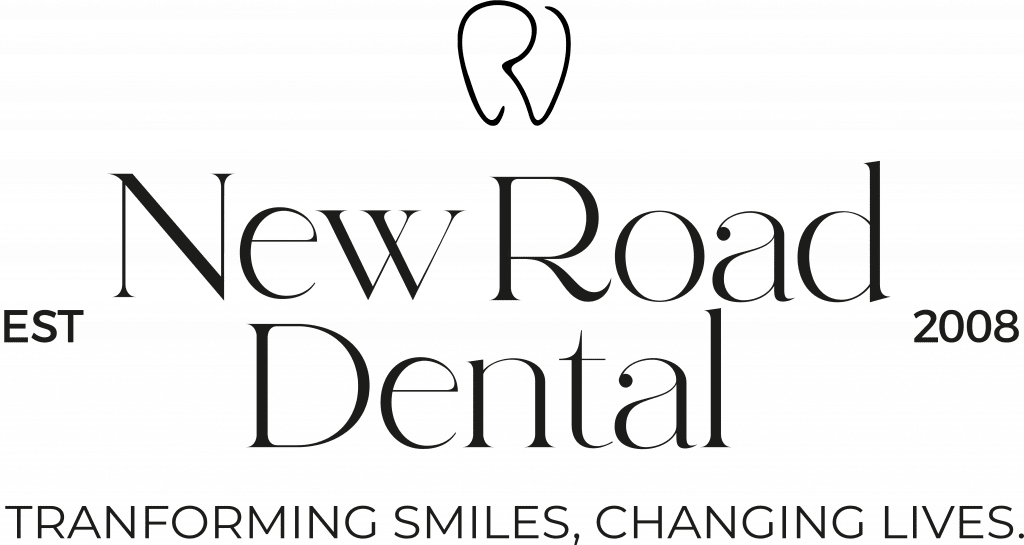Why NHS Patients Trust New Road Dental Practice?
Platinum Invisalign provider
No Waiting Lists or long waits
Free Parking
Nervous Patients
Most up to date technology
High quality dental care
NHS Patients at New Road Dental Practice
All necessary care and treatment is available on the NHS.
This means all treatment that is necessary to protect and maintain the health of your mouth, teeth, and gums is covered by the NHS, including:
- Fillings
- Dentures
- Crowns and Bridges
However, if you want, or if your dentist suggests, treatment that is purely cosmetic, it can only be provided Privately.
Examples of cosmetic treatments include:
- Teeth whitening treatment
- Large white fillings or white crowns on back teeth
Ask your dentist how much these treatments will cost in addition to charges for NHS treatment.
At New Road Dental, we offer additional treatments that are not available on the NHS, such as:
- Dental implants
- Orthodontic treatment (e.g., Invisalign)
For children who are eligible for and require NHS orthodontic treatment, we refer them to an NHS Orthodontist for an assessment. Treatment is provided if appropriate, and we also offer children dentistry for their general dental care.
Who is eligible for free NHS dental services?
You can get free NHS dental treatment if you are:
- Under 18
- 18 and in full-time education
- Pregnant, or have had a baby in the 12 months before treatment starts,
- An NHS inpatient and the treatment is carried out by the hospital dentist, or
- An NHS Hospital Dental Service outpatient. There may be a charge for dentures and bridges
You are also entitled to free NHS dental treatment if you or your partner (including civil partners), receive either:
- Income Support
- Income-based Jobseeker’s Allowance
- Income-related Employment and Support Allowance
- Pension Credit Guarantee Credit; or
- you are named on, or entitled to (use your award notice as evidence), an NHS tax credit exemption certificate, or
- you are named on a valid HC2 certificate (full help with health costs) certificate.
Find out more about the NHS Low Income Scheme (LIS).
There are three standard charges for all NHS dental treatments:
Band 1 course of treatment
£27.40
This covers an examination, diagnosis and advice. If necessary, it also includes X-rays a scale and polish and planning for further treatment.
Band 2 course of treatment
£75.30
This covers all treatments covered by band 1, plus additional treatment, such as fillings, root canal treatment and removing teeth (extractions).
Band 3 course of treatment
£282.80
This covers all treatments covered by Bands 1 and 2, plus more complex procedures, such as crowns, dentures and bridges.
Partial help
If you are named on a valid HC3 certificate (partial help), you might get some help towards the cost of your NHS dental treatment. The certificate tells you how much you will have to pay.
How do I get an HC2 or HC3 certificate?
If you have a low income the NHS Low Income Scheme may help you. To apply for an HC2 certificate, you should complete form HC1 available from Jobcentre Plus offices or most NHS hospitals. Your doctor, dentist or optician may have one too. You can also get an HC1 by calling 0845 610 1112 .
You will qualify for a full help HC2 certificate (which includes free NHS prescriptions), if your income is less than or equal to your requirements, or your income is greater than your requirements by no more than half the current English prescription charge.
You will qualify for a limited help HC3 certificate if your income is greater than your requirements by more than half the current English prescription charge. The HC3 certificate shows how much you have to pay towards your health costs.
Certificates are usually valid for periods of between 6 months to 5 years, depending on your circumstances.
Find out more about the NHS Low Income Scheme.
Exemption for pregnant women
Pregnant women and those who have had a baby in the last 12 months get free NHS dental treatment if:
- you are accepted for a course of treatment,
- you are pregnant, or
- have had a baby in the previous 12 months.
To apply for your maternity exemption certificate ask your doctor, nurse, midwife or health visitor for form FW8. You are required to complete parts 1 and 2 of the form and your doctor, midwife or health visitor is asked to sign to confirm the information given by you is correct.
Your MatEx will last until 12 months after the expected date of birth. If your baby is born early, you can continue to use your exemption certificate until it expires. If your baby is born late, you can apply for an extension. If you apply after your baby is born, your exemption certificate will run for 12 months from your baby’s birth.
For more information on how to apply for a MatEx visit the NHS Business Services Authority website.
How do I claim for help with NHS dental charges?
Tell the dentist you want NHS treatment when you make the appointment and sign the form you are given when you go for treatment. If you do not have to pay, put a cross in the appropriate box.
If you have a valid HC2 certificate or tax credit exemption certificate, write in the certificate number.
If you have a valid HC3 certificate, write in the certificate number and the maximum your certificate says you can pay. You will pay either what appears on the certificate or the actual charge, whichever is the least.
You will be asked to show proof of your entitlement to help with dental costs. If you are not sure you are entitled to help, then you must pay. You can claim a refund, but make sure you keep all receipts.
How can I claim a refund?
Ask your dentist for NHS receipt form FP64 or a receipt that shows the amount of the NHS charge and the date you paid. If you are claiming on the grounds of low income, complete form HC5 – dental charges
You may also be able to get an HC5 from from your dentist, a Jobcentre Plus office or NHS hospital, or order one via the NHS Business Services Authority website or by phoning the NHS forms order line on 0845 610 1112.
Our Patients and what they have to say




